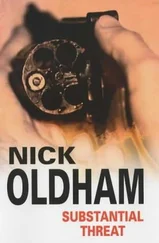But it had not been a waste of time. No, this was how it was done, this was exactly the way. Signals and contacts. The briefest touches. Who was interested when Inoue spoke? Who responded when the seismographs twitched? Who would steal a damaged woman from her son?
A copper’s first, last, and best question: who profits?
He ditched the red marker for a green one, started again. Endlessly and meticulously, he connected and pinned and sketched, knowing that to someone standing in the doorway he would look like a madman, a drooling Renfield hunting flies and spiders back and forth. Green ink zigzagged, looped. He discarded duplication and irrelevance, classified cables and incidentals, policy statements. Facts were everything, tangible and physical. Connect the dots. Here, across the plaster, there and back again. Numbers. Times. Signals. Ships. Over and over. His fingers cramped, tried to fail. He kept going.
Then there was nothing left in his hand. The files were empty.
He stepped back, and stared. And saw a monster’s nest or a cave, a dark blot woven into the fabric of his map.
In the midst of a scaffold of tape and rubber bands, picked out by a weird inward spiral of indirect requests and stark green lines, was a single ship: the Elaine . She was registered out of the Virgin Islands, and flagged in the orange cabinet’s files for special care and consideration. Some things are more invisible than others. Not owned, obviously, by the government or by any actual British firm, but by a shell company beneath a shell company beneath a corporate umbrella to keep off Liverpool’s abysmal rain: a specialist facility working in the field of contagion and containment, making use — according to the company’s relentlessly cheerful web page — of the Mancreu area for its ‘unparalleled opportunities for advanced biomedical research’. And in that enthusiastic admission, and in the schematics attached to the file, he saw Inoue’s tame team, unpacking her best efforts and recasting her conclusions: staving off Mancreu’s end, but retaining the threat and therefore the legal vacuum around the island because it was convenient. Because the shadow that hid the Black Fleet was so very useful in this morally complex time. Because if the Mancreu problem was not really soluble, then at least that insolubility could be useful for other things — for all that discreditable business good chaps do to keep us safe in our beds.
Sandrine.
The Sergeant stared at the images of the Elaine and wondered if it was even possible. How could he invade a ship amid a host of others without detection, find Sandrine, and take her away without being seen? Without being himself detained and exposed? Without drawing down the wrath of his nation on the head of the boy he hoped to bring under its protection?
Or without killing. He was treating this as something for Tigerman, because he could only perform it as Tigerman, in Tigerman’s mask. Lester Ferris must be a million miles away or the whole show was a dud. And Tigerman did not kill, or had not, and did not make his plans with killing in mind. The Sergeant, in the normal run of things, would expect to kill his way into this ship, loudly and messily, leaving no enemies behind him to close off escape. He would treat the whole thing as a building to be cleared, as a standard if dangerous tactical mission of a sort he had carried out countless times in the urban infighting of his other wars. And then being alone was just a matter of a bad ratio of friend to foe: move, clear, hold, repeat. Room by room, with the right equipment, the right ruthlessness and a following wind — and if he made the right guesses about security — he could hollow out the Elaine until it was just him and Sandrine. And then he would bring her home, leaving the ship a floating bloody hulk, in memory of its dishonourable service. The name of Tigerman would take on a sharper edge. Not just a crime fighter, but an avenging angel. He imagined the sticky slipperiness of the metal deck underfoot, and part of him made a mental note to choose the right shoes.
But that would end it all. Even in this pass, the boy would see the shift in him, in the fiction they had created together, from knight to dragon. He would shy away from a red-handed killer even in his gratitude. He had not seen Helmand or Baghdad. It would be new to him, and of all the things he had seen or heard about, it would most resemble Shola’s death, with the Sergeant forever changing sides.
Lester Ferris saw himself gunning down a ship full of cheerful barmen, saw them explode backwards, saw a dozen ridiculous shirts billow and split behind the heart.
He pushed the image away.
Tigerman, then. It had to be Tigerman, doing things Tigerman’s way. A famous victory, the Sergeant sighed to himself, not an infamous one.
He started again. What were the tools of Tigerman’s world? How did one hero take on the hordes of evil? With almost supernatural skill — and he’d have to do without that — and guile. Diversion. Twice, now, in his confrontations, he had relied on explosions to get everyone pointed the wrong way, then come in fast and hit them very hard. Yes, diversion. Then also: reputation. When he had fought Pechorin’s men, he had been let off the hook at that last minute because his enemy was scared of what he was reputed to be: a demon. And last night the rumour of his pursuit had run ahead of him, had somehow turned the mood of the riot until even the Quads had backed down. Reputation, momentum, and allies. He had had allies last night, sudden and unexpected: the crowd themselves, and then the boy’s stooges in their firefighting gear. Could he find allies for this, too, knowing or not?
He looked back at the Fleet, at the tangle of interests and lies, and felt a new understanding take hold of him. I saw the sky rolled up as if a scroll.
The Fleet was one thing, but it was also many things bound in an uneasy union. They were opposed and they distrusted one another, and they were right to do so. Their coexistence was convenient, not perpetual. That fatal missile had scared Kershaw, had done the same to the captains of the Fleet. He could read their dismay and their amazement on the wall by the door, and that dismay was not assuaged by the fact that every single one of them displayed it. One or more of them could be lying, almost certainly were. It was hardly paranoid to wonder about a false-flag operation when you lived in the middle of the largest, most public, most permanent such scheme that had ever existed.
It was not that there were cracks in the alliance. There was no alliance, only a tenuous concert which lasted for as long as each ship held its station and each nation turned its eyes away.
So long as each ship held its station.
Which in turn called one to consider under what circumstances a ship might do otherwise.
Each vessel took orders from its home authority, of course, by whatever devious backchannels had been established. But oper-ational control was passed to the individual captains so that local and immediate matters could be dealt with appropriately. It was bad practice to shackle your commander in the field to the whims and prohibitions of a faraway master.
If those captains were like soldiers on land they would be slow to waken when crisis struck after a long period of quiet, then overcompensate. They would mistrust one another because the likely source of any attack on a vessel of the Fleet was from within the Fleet. However good they were, these were the realities they lived with. They must ask: who is my friend? Who is a threat? and with so many players in the game in such close proximity, the ramifications of any change in the lines of power and alliance multiplied appallingly, possibilities and dangers expanding to every horizon in an instant. Every captain must ultimately accept paranoia, incomplete understanding or paralysis. The best would act decisively but with restraint. The others would dither and lash out, and in doing so they would further cloud the situation around them, each round of response and counter-response becoming more impossible to navigate.
Читать дальше
Конец ознакомительного отрывка
Купить книгу











